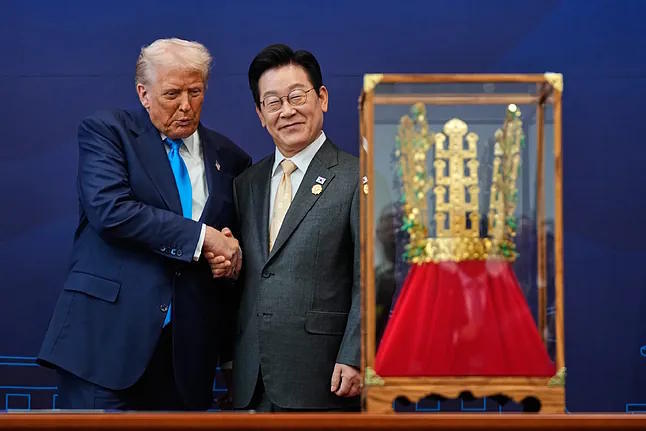In South Korea, where the United States withdrew all nuclear weapons stationed on the Korean Peninsula during the Cold War in 1991, there has long been a demand for the government to develop its own nuclear weapons separate from the atomic umbrella provided by Washington's ally.
This issue was discussed during the bilateral summit on Wednesday between US President Donald Trump and South Korean leader Lee Jae-myung, who requested assistance in building nuclear-powered submarines so that Seoul could match the capabilities of Chinese and North Korean submarines, thereby reducing the burden on US protective forces.
On Thursday, in a post on his Truth Social account, Trump announced that he had given approval for South Korea to build a nuclear-powered submarine, stating that it would be constructed in shipyards in Philadelphia. This news followed a trade agreement between the Republican and Lee, in which the South Koreans committed to investing $350 billion in the US.
"I have given them the green light to build a nuclear-powered submarine, instead of the outdated and much less agile diesel-powered submarines they currently have," wrote Trump. "The military alliance between the United States and South Korea is stronger than ever," he continued.
It was not clear what the size or cost of the submarine project would be, but the South Korean government stated that, as part of the discussions with Trump, they had committed to investing $150 billion in US shipbuilding capacity.
A couple of years ago, during the Biden administration, Seoul agreed that the US nuclear umbrella would once again cover the country as a deterrent to protect this Asian democracy, especially from threats posed by its unpredictable northern neighbor. One of the highlights of that agreement was the deployment of US submarines with nuclear weapons to South Korea.
Trump's meeting with his South Korean counterpart took place in the city of Gyeongju in the southeast, which is hosting the Asia-Pacific Cooperation Forum (APEC) this week, bringing together several world leaders. On Thursday, in the neighboring city of Busan, Trump concludes his Asian tour with an anticipated meeting with Chinese President Xi Jinping.
